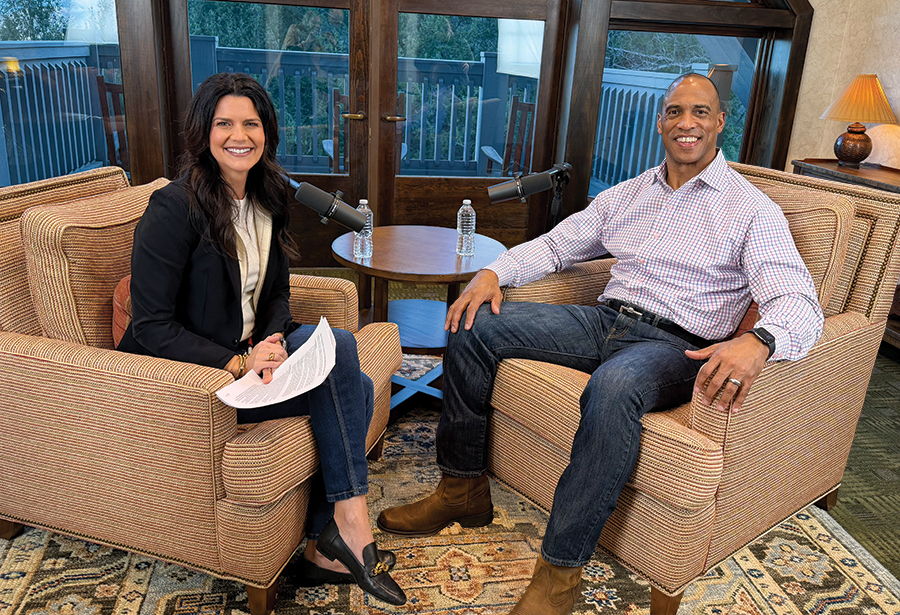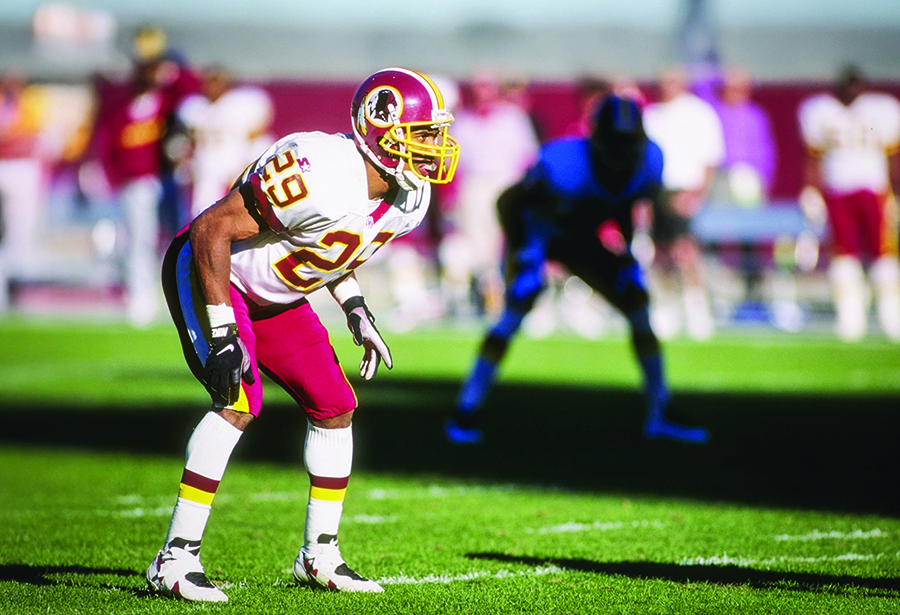Recently on my Fearless podcast, I sat down with Housing and Urban Development (HUD) Secretary Scott Turner to talk about his life as a professional athlete, Texas legislator and associate pastor. Here’s a shortened version of that conversation. — Cissie Graham Lynch
Q: Tell us a little bit about yourself, and how the Lord has brought you to this point.
A: I’m from Dallas, Texas, born and raised. My mom and dad were high school sweethearts. Unfortunately, their marriage ended in divorce when I was 10 years old. But there were two things I took from my parents in the midst of tragedy. One, my mother taught me to have a strong faith in the Lord Jesus from a young age. And, two, my father taught me to work extremely hard and to be a good steward of the gifts I have. I went to the University of Illinois, where I studied speech communications, ran track and played football. I met my wife, Robin, at Illinois. We’ve been married 29 years this past February, so that’s been a beautiful story. My son, Solomon, who is my nephew that Robin and I raised from the time he was 8 years old, also graduated from the University of Illinois.
I was drafted by the Washington Redskins in 1995, in the seventh round as a cornerback. Played there for three years, then went on to the San Diego Chargers for four years and the Denver Broncos for two additional seasons. When I retired from the NFL, I served in the Texas House of Representatives in House District 33. From there, I worked in the first Trump administration with Dr. Ben Carson, and here we are now.
Q: What are some experiences, even hardships from earlier in your life, that you believe prepared you for where the Lord has you now?
A: As I alluded to, my parents went through a terrible divorce, which was heartbreaking. Even as a small child, I can remember being in the presence of the Lord and having a peace in the midst of chaos. God really comforted me. I’m 53 now, and those are some of the fondest memories I have of being alone with Him. That tragedy actually was a tremendous blessing because I spent time with the Lord, and really, He spent time with me. Even today I cherish those times to spend the first part of my day with the Lord, His presence and His Word. Tragedy really taught me how to cherish the time I have with Him.
I had a dream to play in the NFL, but it was seemingly dissipating year by year. And that taught me one, to trust God; two, to never quit; three, to be a blessing to others, even if my dream wasn’t coming true.
My opportunity did come, and God opened the door for me to play. God is a God of completion. That taught me not only how to overcome adversity, but to be a good steward of the opportunity that I have and to honor God with it. I think that has helped me in ministry. It has helped me in business. It has helped me in being a servant leader, an elected official. And now today in leading the wonderful people of HUD and serving our country.
Q: Some people call Washington, D.C., “the devil’s town.” How has your background—even serving on the ministry staff at Prestonwood Baptist Church in Plano, Texas—prepared you for the nation’s capital?
A: I’ll take it back to the NFL. The NFL locker room is like no other place on earth. And for a Christian, for a man of God, for someone who professes to be set apart by the power of God, the NFL locker room is not the most welcoming place. But we are called to be salt and light. We’re called to be a light on the hill. From the NFL to the halls of Congress, to the State House, to the White House, whatever it is, we’re called to literally be a vessel for Christ and to be ambassadors for Him. Going to Washington, D.C., I’m excited because it’s another opportunity. It’s a mission field to reach people for the Lord. HUD is a great vehicle, but the Kingdom is the mission. And to be a leader of HUD, a servant leader, a steward of HUD, to pray for people, encourage people, lead people, serve people, that’s how I look at Washington. I think when we have that kind of view, we can serve in a greater measure.

Q: What is the role of HUD, and why should Christians care about that role?
A: HUD’s role is to serve the most vulnerable people in our country as it pertains to housing, housing assistance, helping people get back on their feet. HUD also has a responsibility when it comes to homelessness and disaster recovery. We have about 14 or 15 programs in HUD to carry out that mission. Our job is to serve those in our country—rural, tribal and urban communities—as it pertains to housing. Housing impacts every American individual and family. We get to serve people literally where they are in their home, or their need for a home.
Q: What are some of the challenges you are facing in office?
A: Homelessness in this past year has gone up 18%. One single night in January of 2024, there were over 770,000 individuals homeless on the streets of America. And that’s unacceptable with all-time record funding for HUD. Homelessness has gone up tremendously, like 32% over the last three to four years. This is unacceptable in our country. We need to work with nonprofits more. We need to work with faith-based institutions more. People may ask, “Why?” Because nonprofit and faith-based institutions are the ones who have boots on the ground. They have their hands to the plow. They’re in the community. They have data-driven results. The federal government is not the answer. The federal government is a great convener of sorts, a facilitator of sorts, but the private sector, the nonprofit and the faith-based institutions, that’s where the real work is being done.

Q: With HUD, how do you view the role of government and local organizations coming together with one voice and working together?
A: Christian people ought to be the ones leading the way in serving those in need. I believe that’s what God has called us to do. Even Jesus said He didn’t come to be served, but He came to serve. I think by serving people, by washing their feet, we’re giving them an encouragement that we’re here with them in the lowest part of their life.
We as the church can pray for people. We can serve them. We can provide for families in need. I believe that’s the role of the church. The government comes in to be a facilitator and to use the resources that have been appropriated by Congress in the appropriate fashion to help those in a time of need. The government has its specific role. The church, the private sector, nonprofits, faith-based organizations have a specific role. I think when those two work in unison together, we can accomplish great things. ©2025 BGEA
Interviewed by Cissie Graham Lynch.
To access more Fearless podcasts, go to CissieGrahamLynch.com. Subscribe or follow Fearless on Apple, Spotify, iHeart or the Billy Graham app.
Photo: Abaca Press / Alamy
